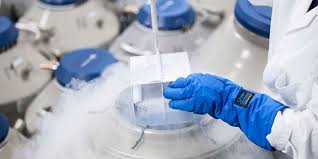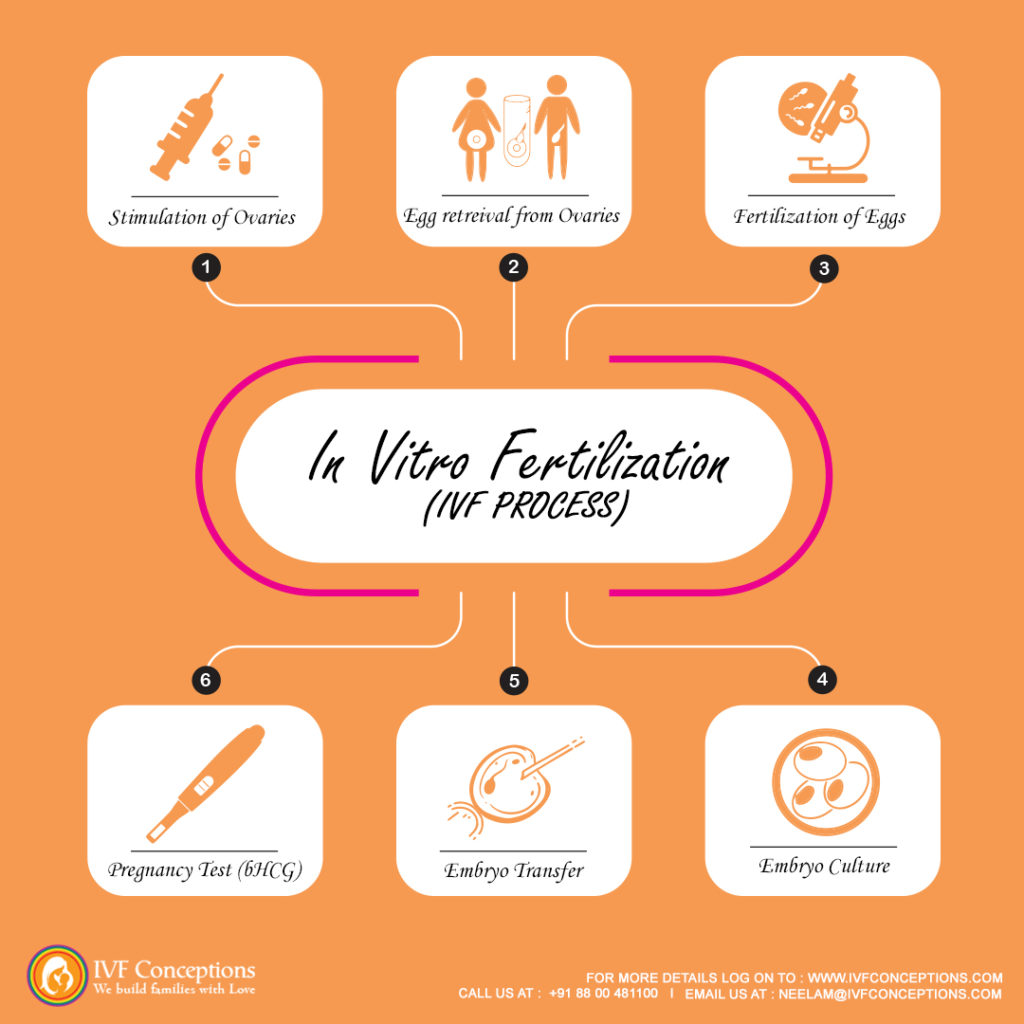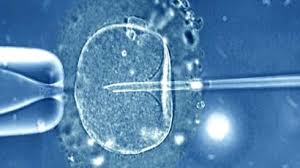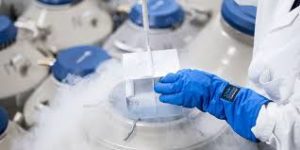
Embryo Transfer is the most anticipated stage of IVF that is filled with hope and prayers! Embryo transfer day marks a pivotal milestone in assisted reproductive technology (ART), bringing hope and anticipation to individuals and couples seeking to conceive. In this comprehensive guide, we delve into the significance of embryo transfer day, walk you through the procedure, provide tips for a successful transfer, and shed light on what to expect during this critical phase of fertility treatment.
In Vitro Fertilization (IVF) is the most commonly used Assisted Reproduction Technique (ART) in the world. In this technique, the sperm and the egg are fertilized outside the body, in the laboratory, to form an embryo. This embryo is then planted in the woman’s uterus for a successful pregnancy. So, this makes the transfer of the embryo to the woman’s uterus an important part of the procedure, or we can say embryo transfer day is the most anticipated part of the IVF process.
What is embryo transfer?
Embryo transfer occurs as the last stage in the IVF treatment. The transmission process of embryos is close to the Pap smear cycle. To hold the vaginal walls intact, the doctor must insert a speculum into the female vagina.
The doctor then passes a catheter into the womb with ultrasound for accuracy. Generally, the process is smooth and sedatives free which means you will not feel pain during the procedure. While in some cases, a woman may feel the pain due to the full bladder for ultrasound purposes or due to the insertion of the speculum.
When did the embryo transfer occur?
The embryo transfer is the last procedure of the IVF treatment after which pregnancy occurs. Around the second to sixth day after fertilization, embryo transfers take place, 48-120 hours following sperm fertilization. In certain cases, it can happen a little later. The IVF’s exact time and day are determined by the embryologist.
Before Embryo Transfer Stage:
How you can prepare for the embryo transfer day?
To optimize the chances of a successful embryo transfer, diligent preparation is key. Here are the essential steps to follow:
- Medication and hormone protocols: Adhering to prescribed medications and hormonal treatments is vital to create an ideal environment for embryo implantation.
- Synchronization with the menstrual cycle: Precise timing and coordination with the menstrual cycle ensure optimal conditions for embryo transfer.
- Endometrial lining preparation: Thorough preparation of the uterine lining is essential for successful embryo implantation.
- Ultrasound monitoring and follicle growth assessment: Regular monitoring through ultrasound examinations allows the medical team to evaluate follicle growth and determine the ideal time for embryo transfer.
Besides this, you would like to follow the specific instructions given for the day of embryo transfer:
- Do not use cosmetic products on the day of the transfer.
- Drink enough water to keep your bladder 2/3rd full.
- Go for a blood test to know your oestradiol and progesterone level as these hormones will help you the most.
- If you have any anxiety related to speculum insertions, just inform your doctor beforehand.
During the Embryo Transfer Stage:
The Embryo Transfer Procedure:
Embryo transfer is a delicate and precise procedure performed by skilled professionals. Here’s a step-by-step breakdown of what to expect:
- Preparation of the embryos: The embryology team ensures that the selected embryos are properly prepared for transfer.
- Speculum insertion and visualization of the cervix: A speculum is gently inserted into the vagina to expose the cervix, which is then visualized by the medical team.
- Catheter insertion and embryo placement: A thin catheter is carefully guided through the cervix into the uterus, and the embryos are gently placed at the designated location.
- Post-transfer care and recovery instructions: Following the procedure, the medical team provides specific instructions on post-transfer care, including recommended activities, restrictions, and any necessary medications.
Tips for a Successful Embryo Transfer:
While the procedure itself is pivotal, certain lifestyle choices and practices can further enhance the chances of a successful embryo transfer:
- Maintaining a healthy lifestyle and diet: Prioritize a balanced diet, regular exercise, and adequate sleep to support optimal reproductive health.
- Minimizing stress and anxiety: Employ stress-management techniques, such as meditation, deep breathing exercises, or engaging in activities that bring joy and relaxation.
- Staying hydrated and well-rested: Hydration and sufficient rest contribute to overall well-being and foster a favorable environment for embryo implantation.
- Following the medical team’s instructions diligently: Strict adherence to the guidelines provided by your medical team ensures you are doing everything possible to maximize the chances of success.
 After Embryos Transfer Stage:
After Embryos Transfer Stage:
What to expect after the Embryo transfer?
Once you are done with the embryo transfer procedure, you are done with the IVF procedure. It is just that you have written an exam but the result is yet to come. The result will show whether your IVF cycle is successful or not. For this purpose, the doctor will schedule your appointment for two weeks after the embryo transfer. But these two weeks you have to be very careful and a 2-week wait can be stressful for many women.
Here are some of the tips you need to follow after the embryo transfer procedure –
- Do not panic – While it is normal to think about what is happening inside your body but do not overthink. If there are any reactions you should consult your doctor or if any unplanned changes are happening still you should consult your doctor. But don’t panic. You must allow your body time and environment to embrace your embryo and to heal physically and emotionally from the IVF cycle itself. Only take it easy, relax, and try positive thinking.
- Keep going for the routine procedures – While early research may show that you should take complete bed rest, recent researches are in favor of doing your daily routine. But make sure you do not go for heavy exercise, drink, or smoke. Instead, you can go out and meet your friends or family members, plan movie dates, etc. These small things will keep you away from being anxious. Also, these would keep you away from agonizing.
- Don’t overdo it – An IVF cycle does not just put a great deal on your body, you must take the time to relax, to recover, and usually just listen to your body. When you’re told to stop and have a day on the bed, then do that. Leaving household chores to your other half and having plenty of sleep. At this point, it is important to take care of yourself.
- Don’t stop your medications without consulting the doctor – It’s necessary to follow the advice of your fertility hospital for a whole 2-week wait and continue to take any medicine that you prescribed. Do not miss doses, and only because you have been bleeding do not want to quit your medicine. A bleed can be a positive indication occasionally.
- Avoid extreme temperatures – It is best to keep the body temperature at a reasonable level since too much heat is not ideal for the implanting of embryos. It is, therefore, advised that hot baths and saunas should be avoided because they may also make you vulnerable to infection. Keep yourself warm and comfortable and stick to warm showers for these two weeks.
More resources:
10 Tips to Improve IVF success rate?
How to deal with the failed IVF cycle?
Difference between IVF and IUI
 Fresh vs Frozen Embryo Transfer: Understanding the Timing for Your Journey
Fresh vs Frozen Embryo Transfer: Understanding the Timing for Your Journey
Whether you opt for a fresh or frozen embryo transfer, each option presents its own unique timeline. Let’s take a friendly look at what you can expect:
Fresh Embryo Transfer (ET)
If you choose a “fresh” transfer, your embryo transfer procedure typically occurs five days after the egg retrieval process.
During this waiting period, the magic of fertilization takes place as the eggs are mixed with sperm.
Throughout this crucial stage, our dedicated embryology team closely monitors the development of your precious embryos, ensuring they have the best chance of thriving.
Frozen Embryo Transfer (FET):
For those who opt for FET, the process involves utilizing embryos frozen from a previous IVF cycle or undergoing preimplantation genetic testing (PGT) to ensure the best chances of success. In this case, your embryos were most likely cryopreserved five, six, or in some instances, seven days after the egg retrieval process. If you are proceeding with a FET, the journey takes a bit longer, typically spanning 3-4 weeks from the start of your menstrual cycle.
However, it’s important to note that the procedure is far from a simple thaw-and-transfer process. It requires careful planning and meticulous effort. Let’s explore how the process:
Once you receive the green light to start a cycle, you will begin taking an oral medication called Estrace for approximately 2-3 weeks.
This crucial step aims to enhance the lining of your uterus, providing the optimal environment for successful embryo implantation. As your cycle progresses, a mid-cycle ultrasound will be scheduled to assess the thickness of your uterine lining, and upon receiving your doctor’s approval, you will move forward with the next steps.
At this stage, you will be instructed to commence intramuscular progesterone injections (commonly known as PIO shots) alongside vaginal progesterone inserts. Though it may not be the most glamorous aspect of the process, it is an essential measure that ensures your body is fully prepared to welcome the embryo and hopefully embark on a healthy pregnancy.
Your FET will take place six days after initiating progesterone supplementation. The timing of this procedure is of utmost importance, playing a critical role in the success of your transfer.
More resources for IVF and fertility:
10 Natural Ways to Boost Male Fertility and Increase Sperm Count
10 Natural Ways To Boost Fertility in Women
All You Need To Know About Infertility Counselling?
What is Better Fresh Eggs or Frozen Eggs?
 Conclusion
Conclusion
Therefore, embryo transfer day is a crucial milestone in the journey toward parenthood through assisted reproductive technology. By understanding the significance, preparing diligently, and implementing lifestyle adjustments, individuals and couples can optimize their chances of success.
While the path may have ups and downs, remember that you are not alone. Reach out to your medical team and lean on your support network for guidance, encouragement, and support every step of the way.
No matter what is the outcome of the IVF cycle, just remember, it is not the end of the world. Just like any medical procedure, IVF comes with inherent complications and that is not able to succeed in the first attempt. But persistence is the key and no matter what is the outcome, keep trying and do not give up on your dream of parenthood.
We wish you so much luck and success on your IVF transfer day, whenever it is coming!
If you’d like to learn more about IVF, Egg Donation, or surrogacy services globally, check out the rest of our website: IVF Conceptions. We offer legally secure and affordable surrogacy consulting services for FREE.

FAQs About Embryo Transfer
How many embryos are transferred?
Generally, transferring one embryo is just enough. But in some cases, doctors may transfer two embryos for a successful pregnancy but in either of the cases, not more than two embryos are transferred to the uterus. When the chances of pregnancy tend to be small for women, doctors may opt to use a technology called HLT, which transfers three or more embryos to the uterus.
Can I have sex after the embryo transfer?
Unfortunately, you cannot have sex for two weeks after the embryo transfer process. Until you receive the reports of the pregnancy test, keep patience, and avoid having sex.
Can an embryo fall out of the uterine cavity?
The uterus is a hollow muscular organ in connection with the vagina. Its contraction prevents the entry of embryos into the vagina following the IVF procedure.
Are there any lifestyle or dietary changes after the embryo transfer?
Drink enough water. Don’t wear tight clothing. It’s great to walk in the fresh air for half an hour a day. Wash in the bathroom only. Hypothermia is to be avoided. Don’t dive into swimming pools or ponds.
Can a doctor postpone the embryo transfer process?
Yes, your doctor can postpone the embryo transfer process owing to the following reasons – Increased abdomen, short breath, or swelling could cause the IVF transfer day to be canceled. Due to disease and viral infections, your immunity may be weak and could not accommodate the embryo. Abnormal level of progesterone – If the levels of progesterone are high then it reduces the chances of effective egg transfer. Also, if it is low, it can affect the outcome.
How full do I need to be for embryo transfer?
When it comes to embryo transfer, having a full bladder plays a crucial role in positioning your uterus for optimal embryo reception. Your dedicated team will guide you through this process, recommending that you hydrate yourself with 20-30 ounces of fluid starting one hour before your scheduled embryo transfer. This friendly advice aims to create the best possible conditions to support a successful transfer.
Is embryo transfer painful?
Rest assured, the embryo transfer process is designed to be as painless as possible. If you’ve undergone intrauterine insemination (IUI) or a pap smear before, you can expect a similar sensation during the transfer. Most importantly, there should be no pain involved. Some patients may experience mild discomfort, which can be attributed to having a full bladder or the insertion of a thin catheter through the cervix. However, your dedicated medical team will ensure your comfort throughout the procedure.
What is the best day for embryo transfer?
Nowadays, it has become the standard to consider Day 5, Day 6, or even Day 7 transfers, once the embryo has progressed to the blastocyst stage with a remarkable 200-300+ cells. This friendly approach ensures that your embryos have ample time to flourish, maximizing the potential for a successful outcome.
Reference Used:
https://www.illumefertility.com/fertility-blog/embryo-transfer-day-101



 After Embryos Transfer Stage:
After Embryos Transfer Stage: Fresh vs Frozen Embryo Transfer: Understanding the Timing for Your Journey
Fresh vs Frozen Embryo Transfer: Understanding the Timing for Your Journey Conclusion
Conclusion